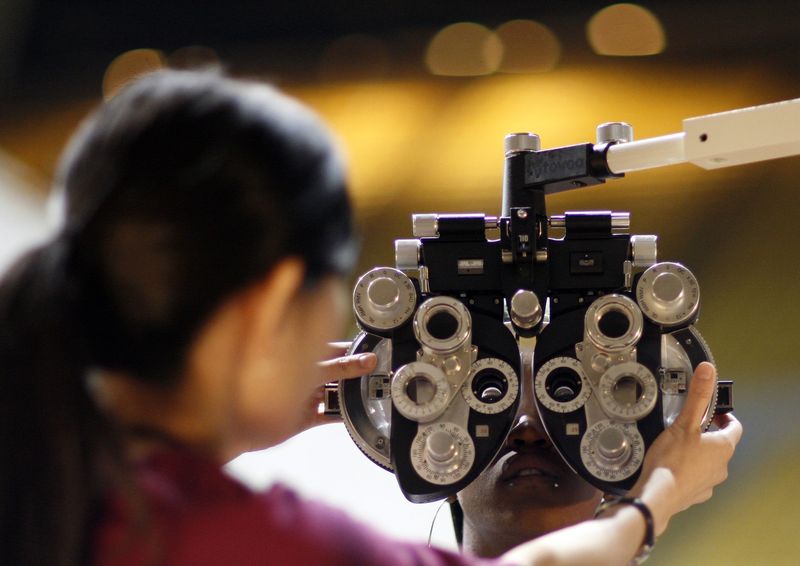(Reuters) -Eyenovia said on Friday it will discontinue a late-stage study for its experimental drug-device combination to treat near-sightedness and cut about 50% of its workforce.
Shares of the company were down nearly 70% at close of trading on Friday.
The drug, a low-dose atropine, was being tested with the company's experimental drug-delivery device, Optejet, as a potential treatment for progressive myopia in children aged between 3 and 12.
An independent committee reviewed the safety and efficacy data from 252 trial participants and found that the rate of myopia progression was not significantly different between the treatment arm and placebo.
All doses of the drug appeared to be well-tolerated with "mild and infrequent" side-effects, the company said.
Optejet delivers the drug in microdoses and reduces chances of overdosing compared to conventional eyedroppers, according to the company.
The drug developer said it plans to review the data more thoroughly and evaluate strategic options, including a business combination, reverse merger and/or sale of assets.
The company said its remaining staff will be focused on the development of the second generation of Optejet.

Earlier this year, Eyenovia (NASDAQ:EYEN) had gained U.S. approval for its eye drops to reduce inflammation and pain in patients who have undergone eye surgery.
The company also markets a pupil-dilating spray, Mydcombi, for use with Optejet during eye examinations.